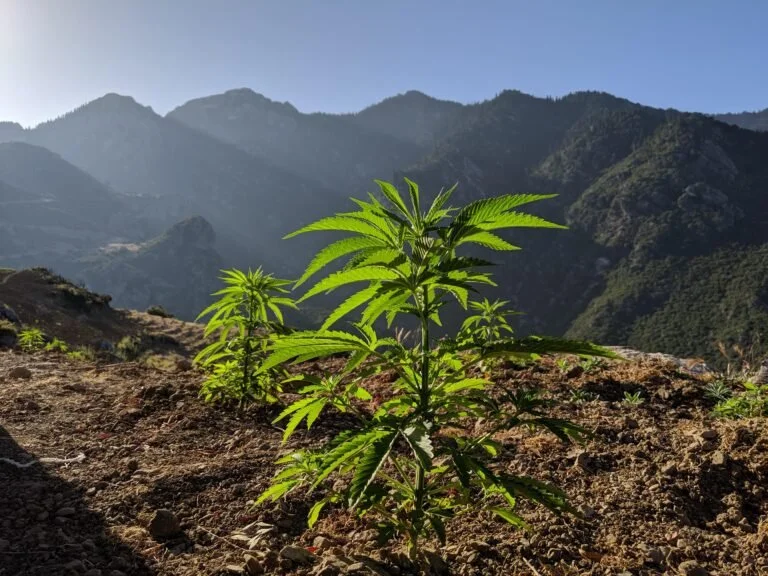Last Week In Weed Issue 12
Published March 1st 2021
Last week in Weed Issue 12, we look at a US company that is effectively trying to patent the ‘auto-flowering’ traits in cannabis genes, New Jersey beginning its adult consumption market, and Morocco announcing that they intend to ‘legalise’ ‘industrial’ and ‘medical’ cannabis in the African coast nation.
Has the Autoflower trait in cannabis just been patented?
The first story we’ll look at this week is that of a new deal between NRGene and Kayagene to grant the pair a world-wide exclusive license to commercialise the auto-flower trait and DNA markers of Cannabis.
By editing the genes of existing cultivars the team hopes to be able to create auto-flowering versions of any cultivar of cannabis. Currently, the cultivation of cannabis requires that the environment be manipulated or simulated to ensure that the light cycle triggers the right stage of development and growth at the right time.
Cannabis cultivars that possess day-neutral genes or Auto-flowering traits will go through a growth cycle and then begin to automatically flower after 3-4 weeks of growth. This would increase the number of crop cycles per year. As well as reduce the energy requirements needed during cultivation.
“Day-length insensitivity, like the ‘auto-flower’ trait, was an important milestone in the domestication and cultivation of many crop plants, and its identification in Cannabis is a significant step towards creating commercially viable varieties of hemp and marijuana” – Dr. Christopher Hohn Kayagene director of R&D
NRGene, the AI gene specialist will be responsible for the development of DNA markers for the day-neutral traits for breeders and growers. Whereas Kayagene, the Californian-based ‘hemp’ cannabis specialist will deal with the delivery and distribution of the modified seeds and pollen containing the desired traits.
The team at NRGene believes that they can use their technology and techniques to integrate the auto-flowering trait into any cannabis cultivar within 12 – 18 months. From cannabinoid dense cultivars to industrial ‘hemp’ cannabis. This could revolutionise the cultivation and production of industrial cannabis greatly increasing R&D around new technologies and applications.
So what does this mean for other Auto-flower breeders? It seems the deal isn’t the same as a patent, neither company will actually ‘own’ the rights to the auto-flowering genes. They have the right via the deal to ‘commercialise’ the traits but as far as I can tell they do not have proprietary ownership of the genes.
This should prevent a range of lawsuits against breeders and cultivators that have been breeding auto-flowering cultivars for many years now. There is still a worry that if the company was to modify enough of the everyday cultivars we regularly consume that they could end up with an unfair advantage and monopoly.
Although I applaud the development of this technology, I still lament the fact that it is for private corporate gain rather than for that of all communities. To me, this is just another example of the gentrifying and whitewashing establishment seeking to control, privatise, and profit from cannabis while millions of our kin around the world still face daily persecution, stigma, and incarceration for their consumption of cannabis.
New Jersey finally ‘legalises’ adult cannabis market
Three months after overwhelmingly voting in favour of ‘legalising’ cannabis, New Jersey’s new rules come into effect last week. The original date for decriminalisation to commence was January 1st, 2021 but disagreements between state governor Phil Murphy over criminal penalties for minors caught with cannabis meant it was delayed several weeks.
“Although this process has taken longer than anticipated, I believe it is ending in the right place and will ultimately serve as a national model” – Democratic Gov. Phil Murphy
During this period the state police continued to arrest people for cannabis offenses. Which kind of doesn’t make sense when you consider New Jersey signed a Bill in December 2019 allowing for the expungement of criminal records obtained through low-level cannabis offenses. So whether those charges will stick or not remains to be seen.
The new legislation aims to provide a ‘legal’ adult consumption market, decriminalise cannabis, and provide much looser penalties for underage consumption. The Jersey model removes penalties for low-level cannabis offenses from being used in pretrial release, probation, and parole decisions.
It also provides ‘critical employment protections’ for those individuals that choose to engage with cannabis lawfully in the state. The ‘possession limit’ in Jersey is a generous six ounces, compared to the usual two. This makes Jersey one of the most attractive models for US federal ‘legalisation’ to be trialed so far.
New Jersey has created the Cannabis Regulatory Commission (CRC) which will oversee the licensing of cannabis businesses and commercial ventures. The garden-states legislature will seek to use cannabis tax revenues to reinvest in ‘impact zones’ areas that were disproportionately detrimentally affected by decades of cannabis prohibition. The CRC is to promote diversity and inclusion through licensing and regulation.
It is expected to take another six months before physical brick-and-mortar shops are open in New Jersey. One of those shops will belong to Jersey legends, Jay and Silent Bob!
Morocco announces plans to ‘legalise’ ‘medical’ and ‘industrial’ cannabis
Legislation expected to be passed next week by the Moroccan government would create a legal market for the cultivation, sale, and export of cannabis for ‘medical’ and ‘industrial’ use. The proposed legislation would still keep so-called ‘recreational’ cannabis illegal.
Although still illegal to grow cannabis in Morocco they are one of the main exporters of unregulated cannabis according to UN statistics on the global drug trade. The majority of cannabis cultivated in Morocco comes from the Rif mountains in the north of the country.
The move comes off the back of last December’s UN vote to remove cannabis from schedule 4 of the UN single convention on narcotic drugs 1961. A move that was supported by Morocco when they voted to back the removal of the archaic designation.
Cannabis has been a contentious issue in Morocco for over a hundred years. In 1890, Sultan Hussan I, implemented strict limitations and regulations on the cultivation and trade of the plant. While at the same time still allowing several Rif mountains tribes the right to cultivate and trade cannabis.
When Morocco gained independence in the 1950s the new king Mohammed V prohibited cannabis across the country. The influx of westerners looking for hash and adventure saw the country become an illegal hub for the production and trade of hashish. This grew exponentially to such a degree that in the early 2000s 70% of hash consumed in Europe was from Morocco.
There have been several previous attempts to pass similar laws, but they have always been blocked by the countries conservative Justice and Development Party (PJD) party. However, it is believed that they stepped aside to allow the legislation to pass.
The bill that is expected to be voted in next week proposes that farmers be organised into cooperatives. They would then in turn sell their crop to local and international processing companies for preparation, extraction, and exportation.
Currently, Moroccan cannabis farmers only earn about half a billion dollars of the estimated $15billion that is made by criminal organisations annually through unregulated trade. This bill hopes to address that disparity, but I cannot help but wonder just how fair and accessible this new system will be to those farmers that desperately rely on cannabis to feed themselves and their families.
Morocco was not the only country announcing its intention to create a domestic cannabis market last week. The government of the small island nation of Bermuda has published a draft of the Cannabis Licensing Act 2020. A proposed legal framework to ‘legalising’ cannabis on the island for both medicinal purposes and adult consumption.
Written By Simpa For The Simpa Life



